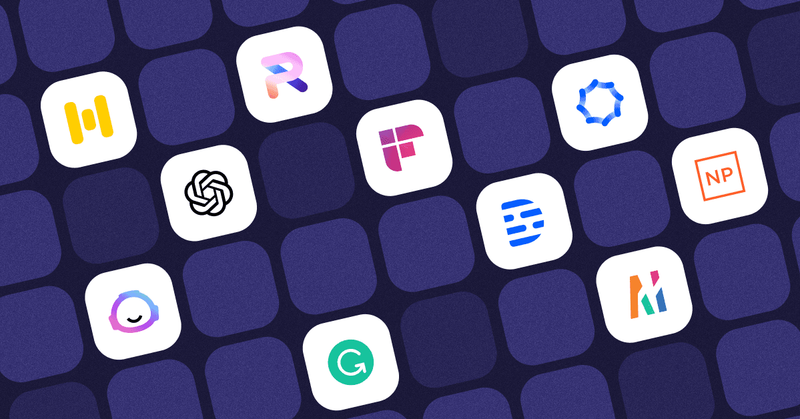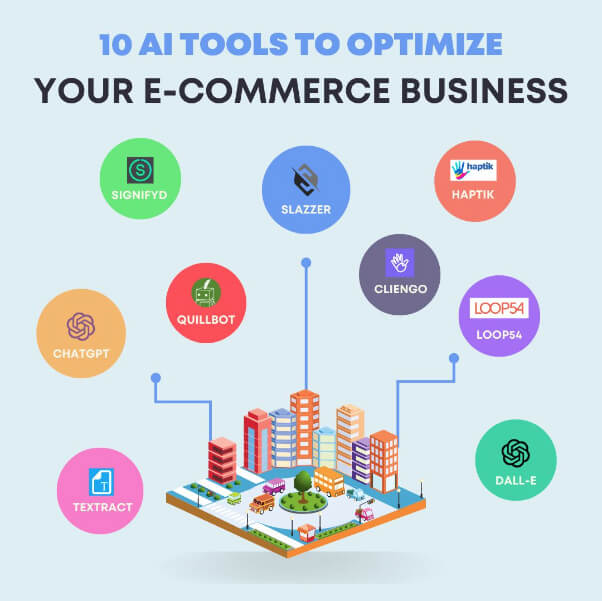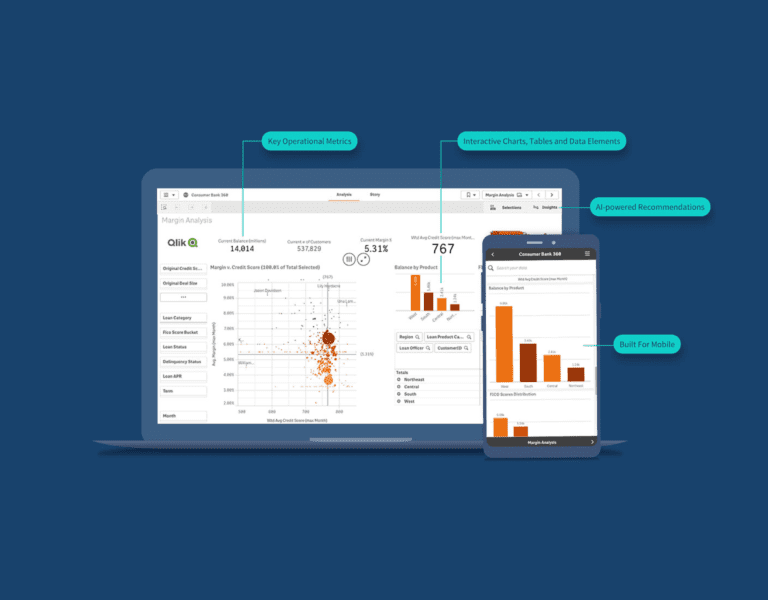10 Business AI Tools: Transform Your Workflow Now!
**10 Business AI Tools**: Businesses can enhance productivity with AI tools like Salesforce, HubSpot, and Asana. These platforms streamline operations, improve customer engagement, and boost efficiency.
**Introduction**: In today’s competitive landscape, leveraging technology is crucial for business success. AI tools offer innovative solutions to optimize processes, enhance customer experiences, and drive growth. From automating repetitive tasks to providing data-driven insights, businesses can harness AI to stay ahead.
These tools cater to various needs, including project management, customer relationship management, and marketing automation. As companies increasingly adopt AI solutions, understanding the best options available becomes essential. This blog explores ten essential AI tools that can transform your business operations and unlock new opportunities for success. Discover how these platforms can streamline tasks and empower your team to achieve greater results.
Introduction To Business AI Tools
Business AI tools revolutionize how companies operate. These tools help automate tasks and improve efficiency. They utilize machine learning, data analytics, and natural language processing. Many businesses now embrace AI to stay competitive.
The Rise Of AI in Business
The use of AI in business is growing rapidly. Companies across all sectors are adopting these technologies. Here are some key reasons for this rise:
- Efficiency: AI tools automate repetitive tasks.
- Cost-Effective: They reduce operational costs over time.
- Data Insights: AI analyzes large data sets quickly.
- Customer Experience: Personalized interactions enhance satisfaction.
Benefits Of Integrating AI into Workflows
Integrating AI into workflows offers numerous benefits. Companies gain a competitive edge and improve productivity. Here are some advantages:
- Increased Accuracy: AI minimizes human errors.
- Faster Decision-Making: AI provides data-driven insights rapidly.
- Enhanced Collaboration: AI tools facilitate teamwork and communication.
- Scalability: Businesses can grow without increasing workload.
Investing in AI tools is essential for future success. Companies that adapt will thrive in the evolving market.

Credit: capsulecrm.com
AI Tool #1: Data Analytics Platforms
Data Analytics Platforms are essential for modern businesses. They help companies understand their data better. These tools offer powerful insights and improve decision-making. With AI, businesses can analyze vast amounts of data quickly.
Real-time Insights
Real-time insights are a game-changer. Businesses can track their performance instantly. This enables quick responses to market changes. Key features include:
- Live dashboards
- Instant data updates
- Visual data representation
Some popular platforms include:
| Platform | Key Feature |
|---|---|
| Tableau | Interactive dashboards |
| Power BI | Custom reports |
| Google Data Studio | Collaboration tools |
Predictive Analysis For Decision-Making
Predictive analysis helps businesses forecast future trends. This tool uses historical data to make predictions. Key benefits include:
- Identifying potential risks
- Spotting growth opportunities
- Enhancing customer experiences
Popular features of predictive analytics include:
- Data modeling
- Trend analysis
- Scenario planning
Using predictive analysis leads to smarter decisions. Businesses can optimize their strategies effectively. This tool is a must-have for any data-driven organization.
AI Tool #2: Customer Relationship Management
Customer Relationship Management (CRM) tools powered by AI are game-changers. They help businesses engage with customers effectively. These tools enhance communication and streamline processes. AI CRM tools gather data to personalize interactions. They also automate sales tasks, saving time and effort.
Personalized Customer Interactions
AI transforms how businesses interact with customers. Here are some key benefits:
- Tailored Messaging: AI analyzes customer data. It creates personalized messages based on preferences.
- Real-Time Insights: AI offers insights into customer behavior. Businesses can respond quickly.
- Improved Customer Engagement: Engaging customers with relevant content boosts satisfaction.
Personalization builds strong relationships. Customers feel valued and understood. This leads to loyalty and repeat business. AI tools track customer journeys seamlessly. They ensure every interaction is meaningful.
Automated Sales Processes
AI tools simplify and automate sales processes. Here’s how:
- Lead Scoring: AI evaluates leads quickly. It prioritizes high-potential customers.
- Follow-Up Reminders: Automatic reminders ensure no lead is forgotten.
- Sales Forecasting: AI predicts sales trends. This helps in planning and strategy.
Automation reduces manual tasks. Sales teams focus on building relationships. AI tools increase efficiency and productivity. They lead to higher sales conversion rates.
| AI CRM Features | Benefits |
|---|---|
| Personalized Messaging | Increases customer satisfaction |
| Lead Scoring | Improves sales focus |
| Sales Forecasting | Aids strategic planning |
| Automated Reminders | Enhances follow-up efficiency |
AI CRM tools are essential for modern businesses. They enhance customer relationships and boost sales performance.
AI Tool #3: Marketing Automation
Marketing automation tools simplify and enhance marketing tasks. They help businesses reach their target audience efficiently. These tools use AI to analyze data and streamline processes. This increases productivity and reduces costs.
Targeted Campaigns
Targeted campaigns focus on specific customer segments. AI tools can analyze customer behavior. This analysis helps create personalized messages. Benefits include:
- Increased engagement rates
- Higher conversion rates
- Better customer retention
For example, a clothing store can send tailored offers. This improves the chances of a sale. Customers feel valued when they receive relevant content.
ROI Measurement And Optimization
Measuring return on investment (ROI) is crucial. Marketing automation tools provide clear insights. These insights help businesses understand what works. Key features include:
| Feature | Description |
|---|---|
| Analytics Dashboard | Visualize performance metrics easily. |
| Campaign Tracking | Monitor the success of each campaign. |
| A/B Testing | Compare different strategies for effectiveness. |
These features help businesses adjust their strategies. Optimize campaigns for maximum effectiveness. Better data leads to smarter decisions.
AI Tool #4: Hr Management Solutions
AI in HR Management transforms how businesses manage their workforce. These tools streamline processes. They enhance productivity and improve employee experiences. Companies benefit from efficient hiring and better retention.
Efficient Recruitment
Recruitment can be time-consuming and complex. AI tools simplify this process significantly. They analyze resumes quickly and accurately. Here are some key features:
- Resume Screening: AI filters resumes based on job criteria.
- Candidate Matching: AI matches candidates to job openings.
- Interview Scheduling: AI automates interview arrangements.
These features save time and reduce human error. Companies can focus on top candidates. AI also helps in creating diverse teams.
Employee Engagement And Retention
Engaged employees perform better. AI tools measure engagement levels effectively. They provide insights into employee satisfaction. Key benefits include:
- Surveys and Feedback: AI gathers real-time employee feedback.
- Personalized Learning: AI recommends training programs for growth.
- Performance Tracking: AI tracks employee performance and goals.
By understanding employee needs, businesses can improve retention. Happy employees are more productive and loyal. AI tools create a positive workplace culture.
AI Tool #5: Chatbots And Virtual Assistants
Chatbots and virtual assistants are transforming customer interactions. These tools provide quick responses and enhance user experiences. They operate 24/7, ensuring customers receive help anytime.
24/7 Customer Service
Chatbots offer round-the-clock support. They never sleep, providing instant assistance. Here are key benefits of 24/7 customer service:
- Immediate Response: Customers get answers quickly.
- Increased Engagement: Users remain interested and satisfied.
- Cost-Effective: Reduces the need for large support teams.
Businesses save time and resources with chatbots. They handle multiple inquiries at once. This capability improves efficiency and customer satisfaction.
Natural Language Processing
Natural Language Processing (NLP) allows chatbots to understand human language. This technology makes interactions feel natural. Here’s how NLP enhances chatbots:
- Context Understanding: Chatbots grasp user intent.
- Personalized Responses: Tailor’s answers based on previous chats.
- Language Support: Communicates in multiple languages.
NLP helps chatbots interact like humans. This builds trust and loyalty. Customers enjoy more meaningful conversations.
AI Tool #6: Supply Chain Optimization
Supply chain optimization uses AI to enhance efficiency. It helps businesses manage resources better. This tool focuses on two main areas: inventory management and logistics coordination.
Inventory Management
AI improves inventory management in many ways. It predicts demand accurately. Businesses can stock the right amount of products.
- Reduces excess stock
- Minimizes stockouts
- Improves cash flow
AI tools analyze sales data. They provide insights on trends and patterns. Companies can adjust their inventory levels accordingly.
Here are some benefits:
| Benefit | Description |
|---|---|
| Accuracy | Reduces errors in stock levels. |
| Cost Savings | Decreases storage costs. |
| Efficiency | Speeds up order fulfillment. |
Logistics Coordination
Logistics coordination is another key area. AI streamlines shipping and delivery processes. It helps companies make smarter decisions.
- Tracks shipments in real-time
- Optimizes delivery routes
- Reduces transit times
AI analyzes traffic data. It finds the fastest routes. This saves time and fuel costs.
Key advantages of AI in logistics include:
- Improved Customer Satisfaction: Faster deliveries lead to happier customers.
- Enhanced Visibility: Full insight into shipment status.
- Better Resource Allocation: Optimizes the use of transport vehicles.
AI-powered tools transform how businesses manage their supply chains. They create more efficient and effective operations.
AI Tool #7: Financial Forecasting Systems
Financial forecasting systems use AI to predict a company’s future financial performance. They analyze past data and trends. This helps businesses make informed decisions. Using these tools can save time and increase accuracy.
Cash Flow Analysis
Cash flow analysis is crucial for business health. It shows how money moves in and out. AI tools can automate this process.
- Real-time tracking: Monitor cash flow as it happens.
- Data visualization: Generate clear graphs and charts.
- Trend identification: Spot patterns in cash flow over time.
AI tools can also forecast future cash flow. This helps in planning for expenses and investments. Businesses can make smarter choices based on these insights.
Risk Assessment
Risk assessment is vital for every business. It identifies potential financial risks. AI can enhance this process significantly.
| Risk Type | AI Capabilities |
|---|---|
| Market Risk | Predict changes in market conditions. |
| Credit Risk | Evaluate borrower reliability using data analysis. |
| Operational Risk | Identify internal process weaknesses. |
AI tools analyze large datasets quickly. They provide insights into potential risks. This leads to better financial strategies.
Using financial forecasting systems boosts confidence. Companies can navigate uncertainties with improved clarity. Business owners can focus on growth, knowing they have reliable data.
AI Tool #8: Cybersecurity Enhancements
Cybersecurity enhancements using AI tools protect businesses from online threats. These tools improve security by detecting risks and automating responses. Companies can stay safe with real-time threat management.
Threat Detection
AI tools excel in identifying potential threats. They analyze vast amounts of data quickly. Here are key features:
- Real-time Monitoring: Constantly watches for unusual activity.
- Behavioral Analysis: Understand normal user behavior to spot anomalies.
- Predictive Analytics: Uses past data to foresee future threats.
These features help businesses act before damage occurs. AI tools can significantly reduce reaction time to threats.
Automated Incident Response
AI tools streamline how businesses respond to incidents. They can react faster than human teams. Key benefits include:
- Immediate Action: AI can isolate affected systems instantly.
- Consistent Responses: Automation ensures uniformity in handling incidents.
- Reduced Workload: Frees up IT staff for other tasks.
Using AI for incident response minimizes human error. It leads to quicker recovery from attacks.
| Feature | Benefit |
|---|---|
| Real-time Monitoring | Detect threats as they happen |
| Behavioral Analysis | Identify unusual activities |
| Immediate Action | Limit damage swiftly |
Cybersecurity enhancements through AI tools are crucial for safety. They create a secure environment for businesses to thrive.
A ITool #9: Project Management Assistants
Project Management Assistants streamline team collaboration. They help organize tasks and improve efficiency. Businesses can save time and resources with these tools. Let’s explore their main features.
Task Automation
Task automation is a game-changer. It reduces manual work and increases productivity. Here are some benefits:
- Time-saving: Automate routine tasks like scheduling.
- Consistency: Ensure tasks are completed without errors.
- Focus: Let teams focus on high-priority projects.
Many tools offer templates for repetitive tasks. Users can set triggers for specific actions. This makes project management seamless.
Progress Tracking
Progress tracking is essential for project success. It helps teams stay on target and meet deadlines. Here’s how it works:
- Real-time updates: View project status instantly.
- Milestones: Set goals and track achievements.
- Reports: Generate insights to improve performance.
Visual dashboards display progress clearly. Teams can easily spot delays or issues. This leads to faster decision-making and better outcomes.
| Feature | Description |
|---|---|
| Task Automation | Reduces manual input and saves time. |
| Progress Tracking | Monitors project status and milestones. |
AI Tool #10: Content Creation And Curation
Content creation and curation is essential for businesses today. AI tools simplify this process. They save time and improve quality. Let’s explore how AI enhances content writing and personalization.
Automated Writing And Editing
Automated writing tools generate content quickly. These tools use algorithms to create articles, blogs, and more. They help you maintain a consistent tone and style. Here are some benefits:
- Speed: Produce content in minutes.
- Cost-effective: Reduce hiring costs for writers.
- Quality: Maintain high standards with built-in editing.
Examples of popular automated writing tools include:
| Tool Name | Main Features |
|---|---|
| Jasper | AI writing assistant for various content types. |
| Grammarly | Grammar checking and style suggestions. |
| Copy.ai | Generates marketing copy and social media posts. |
Content Personalization
Content personalization enhances user engagement. AI analyzes user data to tailor content. This makes interactions more relevant. Here’s how it works:
- User Behavior: Analyze clicks and preferences.
- Demographics: Adjust content based on age and location.
- Feedback: Use surveys to refine content offerings.
Personalized content leads to higher conversion rates. Tools like HubSpot and Optimizely specialize in this area.
In summary, AI tools for content creation and curation revolutionize how businesses communicate. They offer speed, quality, and engagement. Embrace these tools to elevate your content strategy.
Implementing AI in Your Business
Implementing AI in your business can transform operations and boost efficiency. AI tools help automate tasks, analyze data, and improve decision-making. Businesses of all sizes can benefit from these innovations.
Choosing the right tools is essential. Integration with existing systems is also crucial for success. The right approach makes a significant difference.
Choosing The Right Tools
Selecting the right AI tools for your business is vital. Consider your goals and needs. Here are some key factors to keep in mind:
- Functionality: Ensure the tool meets your specific needs.
- User-Friendliness: Choose tools that are easy to use.
- Scalability: Look for tools that grow with your business.
- Support: Check for reliable customer support services.
Integrating AI with Existing Systems
Successful integration of AI tools requires careful planning. Follow these steps for smooth integration:
- Assess Current Systems: Identify your existing software and platforms.
- Determine Compatibility: Ensure AI tools work well with your systems.
- Plan Implementation: Create a detailed integration plan.
- Train Your Team: Provide training on new tools and processes.
- Monitor Performance: Track results to ensure effectiveness.
Proper integration maximizes the benefits of AI tools. It ensures a smoother transition and enhances productivity.
Future Of AI in Business
The future of AI in business is bright and transformative. Companies are adopting AI tools to enhance efficiency and productivity. These tools streamline operations and improve decision-making processes. They also boost customer satisfaction and drive innovation.
Emerging Trends
Several key trends are shaping the future of AI in business:
- Automation: Repetitive tasks will be automated, saving time and reducing errors.
- Personalization: AI will tailor experiences for customers based on their preferences.
- Data Analysis: Businesses will use AI for real-time data insights and analytics.
- Natural Language Processing: AI will improve communication through chatbots and virtual assistants.
- Predictive Analytics: Companies will predict trends and customer behavior using AI tools.
Long-term Impact On Industries
AI’s long-term impact will reshape various industries. Here are some examples:
| Industry | Impact |
|---|---|
| Healthcare | Improved diagnostics and personalized treatment plans. |
| Retail | Enhanced inventory management and customer engagement. |
| Manufacturing | Increased efficiency and reduced operational costs. |
| Finance | Better fraud detection and risk management. |
| Transportation | Optimized routes and reduced delivery times. |
AI will also create new job opportunities. Workers will need to learn new skills. Training programs will help employees adapt to these changes.
Business leaders must embrace AI technology. Staying ahead in innovation is crucial for success.

Credit: slazzer.com
Frequently Asked Questions
What Are The Best AI Tools for Businesses?
Some of the best AI tools for businesses include ChatGPT for customer support, Salesforce Einstein for CRM, and Tableau for data visualization. These tools enhance efficiency, improve decision-making, and provide valuable insights. They cater to various business needs, from automating tasks to analyzing data.
How Can AI Tools Improve Business Productivity?
AI tools can automate repetitive tasks, freeing up time for strategic work. They provide insights through data analysis, enabling better decision-making. By streamlining processes and enhancing communication, AI tools significantly boost overall productivity in the workplace.
Are AI Tools Expensive For Small Businesses?
Many AI tools offer affordable plans suitable for small businesses. Some even have free versions with basic features. It’s essential to assess your business needs and choose tools that provide the best value without breaking the budget.
How Do AI Tools Enhance Customer Experience?
AI tools enhance customer experience by providing personalized interactions and quick responses. They analyze customer data to tailor services and predict needs. This leads to improved satisfaction and loyalty, ultimately benefiting the business.
Conclusion
Choosing the right AI tools can transform your business operations. Each of the ten tools mentioned offers unique benefits. Implementing them can enhance productivity, streamline processes, and drive growth. Stay ahead of the competition by integrating these innovative solutions. Explore these options to find the best fit for your business needs.





